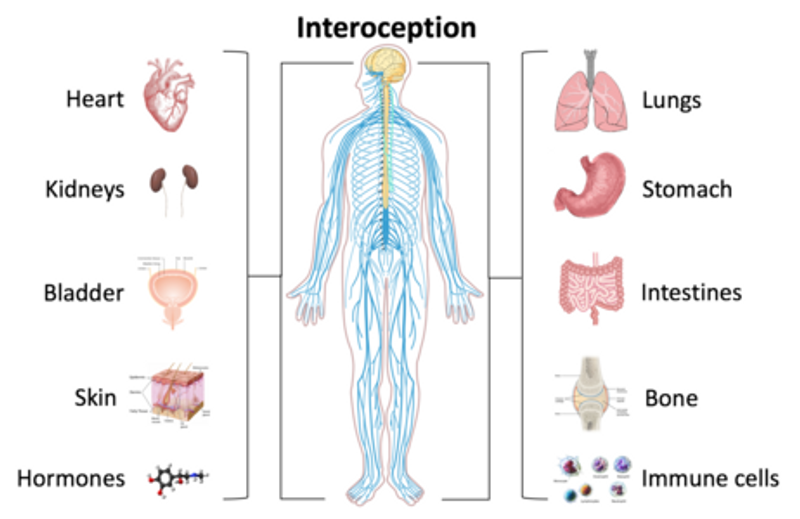Interoception – Why “Hangry” is a Scientific Concept

Adapted from the GHC community education presentation given by Tracey Davis, MOT, OTR/L
Do you ever feel “butterflies” in your stomach? What does that mean? Are you hungry? Nervous? Excited? Do you need to use the bathroom? Your interoceptive sense is what helps you sort this all out. The interoceptive sense includes information coming from all of the organs of the body, including inner, automatic sensations. This sensory information is also processed in the same part of the brain as emotion. When you feel happy, mad, or anxious, how do you know? It’s your body interpreting the meaning of internal sensations.
Interoception drives self-regulation. When you feel hunger sensations, you eat. When you feel sleepy, you go to bed. In addition, interoceptive awareness is critical for decision making, flexible thinking, social awareness and emotional intelligence.
As with any of our senses, interoception can be impacted by challenges with sensory processing. Some red flags that may indicate challenges with interoception include:
Signs of poor interoceptive awareness
Always seems hungry or thirsty
Wears inappropriate clothing for the weather or refuses to take off coat after recess
Frequent bathroom use not attributed to a medical condition
Overly dramatizes very minor ailments
Difficulty identifying emotions or stressors, despite being able to recite things like Zones of Regulation tools
An OT who specializes in sensory processing challenges can help to identify difficulty with interoception. And there is good news. Research supports the idea that challenges with this important sense can improve! Intervention may include adaptations to your daily routine as well as exercises aimed at improving the sensation and interpretation of internal body cues. It is also helpful to encourage the use of creative, sensory rich words to describe the feelings associated with a body part, emotion, or feeling. Like, “My tongue is dry, I need a drink!”
Resources
Book: Interoception, the Eighth Sense by Kelly Mahler, MS, OTR/L
Article: Social antecedents to the development of interoception: Attachment related processes are associated with interoception in Frontiers in Psychology
Article: Trait emotional intelligence, behavioral difficulties and interoception in children in The European Health Psychologist
Originally posted by Growing Healthy Children Therapy Services via Locable

Growing Healthy Children Therapy Services
3498 Green Valley Rd
Rescue, CA 95672
530-391-8670
www.ghcot.com
